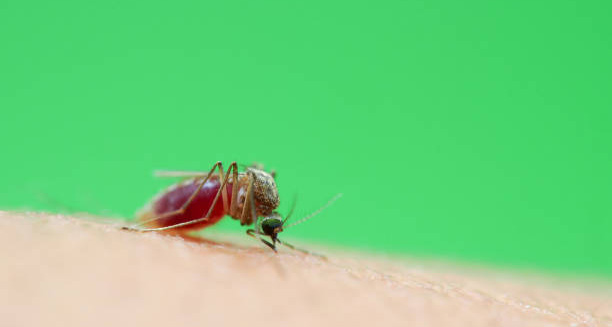Insect bites are caused by the feeding behaviour of certain insect species that rely on human or animal blood for nourishment or reproduction.
Understanding the causes of insect bites means looking at what insects need to survive, where they live, and how people expose themselves to them. Most bites are harmless and heal fast. Still, the causes show a close link between bugs, people, and the environment.
At the simplest level, insect bites happen when an insect breaks the skin to suck blood. Different bugs do this for different reasons. For example, only female mosquitoes bite because they need blood to lay eggs. Their saliva contains special chemicals that stop blood from clotting. These chemicals also start the body’s immune reaction, which causes itching and swelling. Male mosquitoes, in contrast, eat plant nectar instead. This difference shows how the causes of insect bites are often tied to how insects reproduce.
Ticks are also common biters. They stay attached to skin for hours or even days while feeding. Their bite doesn’t hurt right away because their spit numbs the skin. But ticks are dangerous because they can spread illnesses like Lyme disease. Fleas, which often live on pets like dogs and cats, may bite people too—especially if infestations are not treated. Fleas usually bite the ankles and leave itchy red marks in groups.
Environmental Causes of Insect Bites
Another major cause of insect bites is the environment. Certain climates attract more bugs. Warm and wet weather helps insects like mosquitoes, flies, and midges to breed. In cooler places, biting bugs are less common, but they can still show up during warmer months. For example, Scotland’s midges or Canada’s blackflies cause serious discomfort in summer.
Standing water is a big factor. Places like blocked drains, puddles, or water-filled buckets help mosquitoes multiply. Ticks like to live in long grass, fallen leaves, and wooded areas. If someone lives near these spots, they’re more likely to get bitten. Rural homes, forest cabins, or messy gardens often lead to more bug problems.
The causes of insect bites also link closely to human habits. Wearing short clothes outdoors, especially at sunrise or sunset, raises the risk. Hikers, gardeners, and campers often get bitten more because they spend time in nature. If they don’t wear insect spray or cover their skin, they become easy targets. Travellers to tropical places also face higher risks if they don’t protect themselves properly.
Causes of Insect Bites Related to the Body
Body chemistry also plays a role. Mosquitoes like carbon dioxide from breathing and chemicals in sweat. People who are active or have warm skin often attract more bugs. Even blood type can matter. Some studies show mosquitoes bite people with type O blood more than others.
Scents from perfume, body lotion, or deodorant can also pull in insects. Sweet or floral smells mimic food for them. Unscented products or bug sprays help keep insects away. Even the colour of clothing matters—dark colours seem to attract more bugs than light ones.
Poor hygiene or messy living spaces can add to the problem. Bedbugs often hide in cluttered or rarely cleaned rooms. While their presence doesn’t always mean someone is dirty, messy places make it harder to spot them. Ants can also cause bites or stings, especially in kitchens where food is left out.
Causes of Insect Bites from Pets, Seasons, and Climate
Pets can bring bugs into the home. Fleas, mites, and ticks often jump from pets to people. Even if animals don’t show signs of trouble, they can carry pests. Skipping vet visits or not cleaning your home enough makes insect bites more likely.
Seasonal shifts and global weather changes also add to the causes of insect bites. Warmer winters and more rain have helped insects spread to new places. Biting insects now live in areas once thought safe. Because of climate change, diseases like dengue and chikungunya are now seen in more parts of the world.
Even social and economic conditions matter. In poorer areas, bad housing, weak healthcare, and lack of clean water make bites more common. Dirty surroundings attract more bugs. Homes without window screens let mosquitoes inside easily. Crowded places like refugee camps often face large outbreaks of diseases from insect bites.
Conclusion: Understanding the Causes of Insect Bites
In conclusion, the causes of insect bites come from many sources. They include insect habits, where people live, how they act, and bigger problems like climate and poverty. Knowing what causes bites helps people stay safe. Whether it’s staying indoors at dusk, wearing long sleeves, or keeping your house tidy, simple actions can reduce the risk. Learning about the causes of insect bites is the first step to avoiding discomfort and serious illness.


